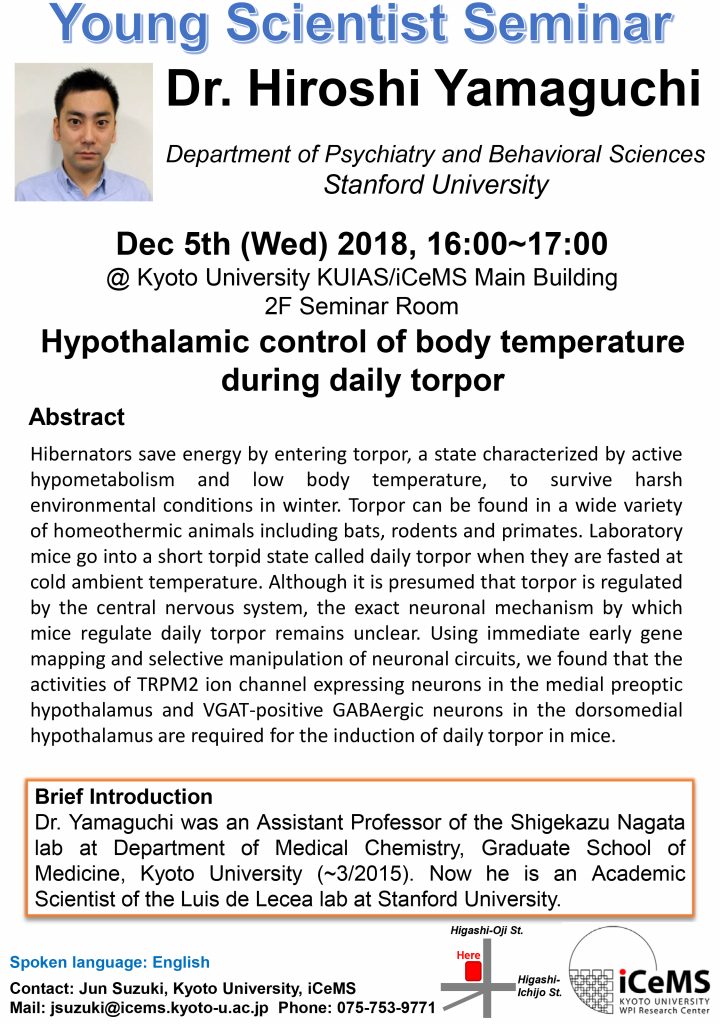iCeMS Suzuki Lab Seminar: Dr Hiroshi Yamaguchi

This notice is to inform you of an upcoming seminar, all researchers are welcomed to attend. No registration is required.
Dr Hiroshi Yamaguchi
Department of Psychiatry and Behavioral Sciences Stanford University
Hypothalamic control of body temperature during daily torpor
Hibernators save energy by entering torpor, a state characterized by active hypometabolism and low body temperature, to survive harsh environmental conditions in winter. Torpor can be found in a wide variety of homeothermic animals including bats, rodents and primates. Laboratory mice go into a short torpid state called daily torpor when they are fasted at cold ambient temperature. Although it is presumed that torpor is regulated by the central nervous system, the exact neuronal mechanism by which mice regulate daily torpor remains unclear. Using immediate early gene mapping and selective manipulation of neuronal circuits, we found that the activities of TRPM2 ion channel expressing neurons in the medial preoptic hypothalamus and VGAT-positive GABAergic neurons in the dorsomedial hypothalamus are required for the induction of daily torpor in mice.
- Date/Time
- Wednesday, December 5, 2018, 16:00-17:00
- Venue
- 2nd floor Seminar Room (#A207), iCeMS Main Building (#77), Kyoto University Directions
- Registration
- Not required
- Language
- English
- Host and contact
- Jun Suzuki Lab, Institute for Integrated Cell-Material Sciences (iCeMS), Kyoto University Institute for Advanced Study jsuzuki-g [at] icems.kyoto-u.ac.jp







